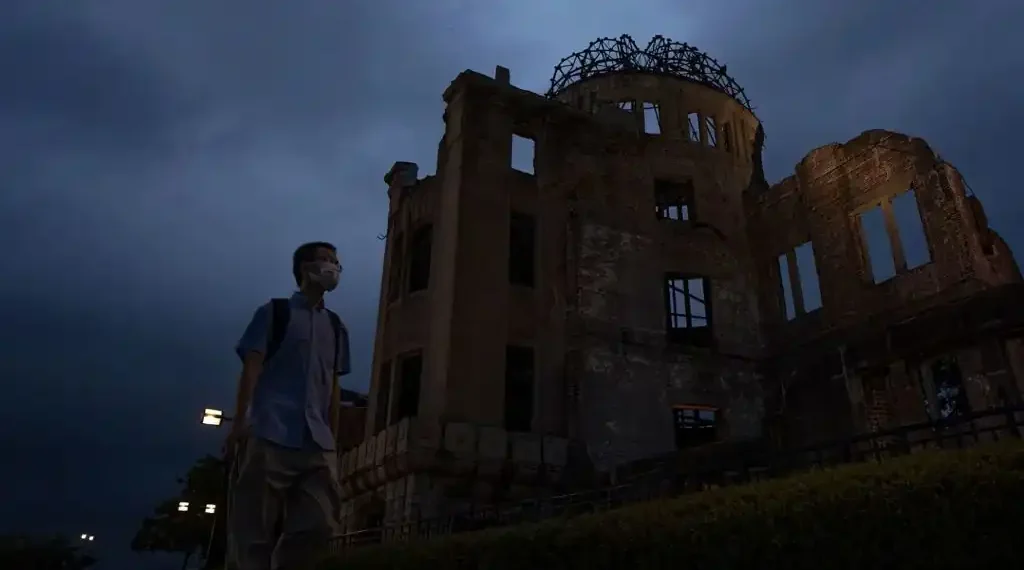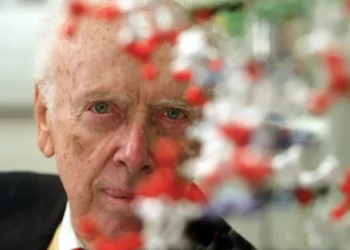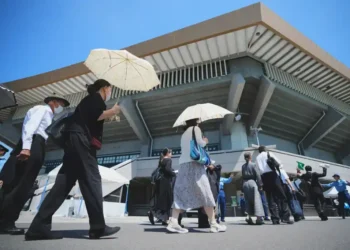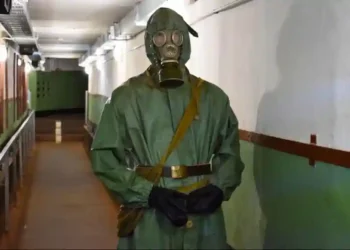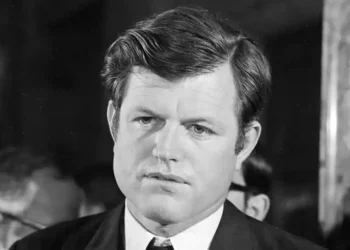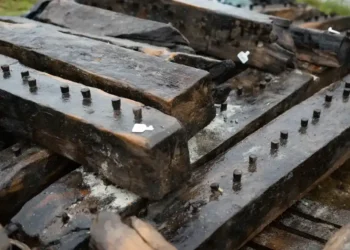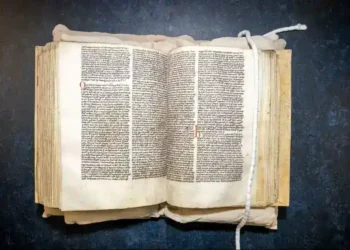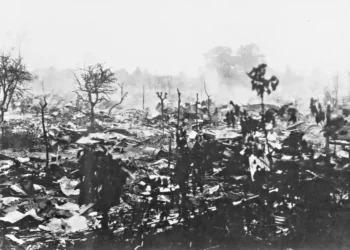World Marks 80 Years Since Hiroshima Bombing Amid Renewed Nuclear Threats
Writing Time: August-06-2025, 14:00 (U.S. Eastern Time)
Hiroshima, Japan – On the 80th anniversary of the atomic bombing of Hiroshima, global leaders, survivors, and experts are warning that the world faces its highest risk of nuclear conflict in decades. The solemn remembrance comes as geopolitical tensions intensify and nuclear-armed nations expand their arsenals.
At the Hiroshima Peace Memorial Park on Wednesday morning, survivors of the 1945 bombing, alongside dignitaries from around the world, gathered to honor the victims of the first nuclear attack in history. On August 6, 1945, a U.S. B-29 bomber dropped the atomic bomb “Little Boy” on Hiroshima, killing more than 110,000 people instantly. Three days later, a second bomb struck Nagasaki, resulting in further mass casualties.
A Legacy of Destruction and a Present-Day Warning
The 1945 bombings remain the only wartime use of nuclear weapons. Yet, experts caution that current global divisions over disarmament, coupled with rising geopolitical tensions, make the threat more immediate.
“The divisions within the international community over nuclear disarmament are deepening, and the current security environment is growing increasingly severe,” Japanese Prime Minister Shigeru Ishiba said during the ceremony.
Nihon Hidankyo, a grassroots organization of atomic bomb survivors that won the Nobel Peace Prize for advocating nuclear abolition, issued a stark warning: “We don’t have much time left. We face a greater nuclear threat than ever.”
Modern Conflicts Fueling Nuclear Rhetoric
Recent months have seen dangerous exchanges between nuclear powers. The United States and Russia traded nuclear warnings amid the ongoing war in Ukraine. Earlier this year, the U.S. reportedly struck Iranian nuclear facilities with conventional weapons to curb Tehran’s nuclear ambitions.
In South Asia, a brief armed clash between India and Pakistan over Kashmir raised fears of escalation between two nuclear-armed neighbors. These events reflect a broader pattern of growing arsenals, sharper rhetoric, and the breakdown of arms control agreements, according to Hans Kristensen of the Stockholm International Peace Research Institute (SIPRI).
Doomsday Clock Signals Extreme Danger
In January, the Bulletin of the Atomic Scientists moved its symbolic “Doomsday Clock” to 89 seconds before midnight — the closest it has ever been to a global catastrophe.
While the one-second change from last year’s 90 seconds may seem minimal, experts stress the symbolism. “A move of even a single second is an unmistakable warning that every moment of delay increases the probability of disaster,” the group said in a statement.
The Bulletin’s assessment includes nuclear threats, climate change, biological risks, and the misuse of emerging technologies like artificial intelligence. However, nuclear proliferation remains at the forefront of its concerns.
Global Nuclear Stockpiles: Growing in Size and Capability
By today’s standards, the Hiroshima bomb — with a yield of 15 kilotons — is considered low-yield. Modern warheads can be dozens of times more powerful. The largest nuclear weapon in the U.S. arsenal has a yield of 1.2 megatons, around 80 times the power of “Little Boy.”
SIPRI estimates that nine countries currently hold more than 12,000 nuclear warheads: the United States, Russia, China, France, the United Kingdom, India, Pakistan, North Korea, and Israel.
The U.S. and Russia together possess about 90% of the global stockpile. China is expanding rapidly, adding around 100 warheads annually. India and the UK are also reportedly increasing their arsenals.
North Korea remains steadfast in its nuclear stance. Last month, Kim Yo Jong, sister of North Korean leader Kim Jong Un, declared that Pyongyang would “thoroughly reject” any attempt to deny its nuclear weapons status, dismissing the possibility of disarmament talks with Washington or Seoul.
A Call for Renewed Commitment to Disarmament
Despite decades of nonproliferation treaties, experts say the trend is moving in the wrong direction. Nations are investing heavily in upgrading their nuclear forces, undermining the spirit of past disarmament efforts.
For survivors of Hiroshima and Nagasaki, the anniversary is a reminder that the devastating human cost of nuclear war should never be repeated.
“The world is closer to nuclear conflict than at any time since the Cold War,” said Kristensen. “Without urgent and collective action, the risk will continue to grow.”
Remembering the Past, Protecting the Future
The Hiroshima and Nagasaki bombings transformed global politics, ushering in the nuclear age and decades of arms races. Eighty years later, the lessons of those tragedies remain as urgent as ever.
Survivors and peace advocates stress that remembrance must go hand in hand with political action. As nations commemorate the lives lost, many are calling for renewed dialogue, stronger arms control agreements, and a commitment to prevent the unthinkable from happening again.
Note: This article contains references to nuclear warfare and mass casualties.
This article was rewritten by JournosNews.com based on verified reporting from trusted sources. The content has been independently reviewed, fact-checked, and edited for accuracy, neutrality, tone, and global readability in accordance with Google News and AdSense standards.
All opinions, quotes, or statements from contributors, experts, or sourced organizations do not necessarily reflect the views of JournosNews.com. JournosNews.com maintains full editorial independence from any external funders, sponsors, or organizations.
Stay informed with JournosNews.com — your trusted source for verified global reporting and in-depth analysis. Follow us on Google News, BlueSky, and X for real-time updates.
